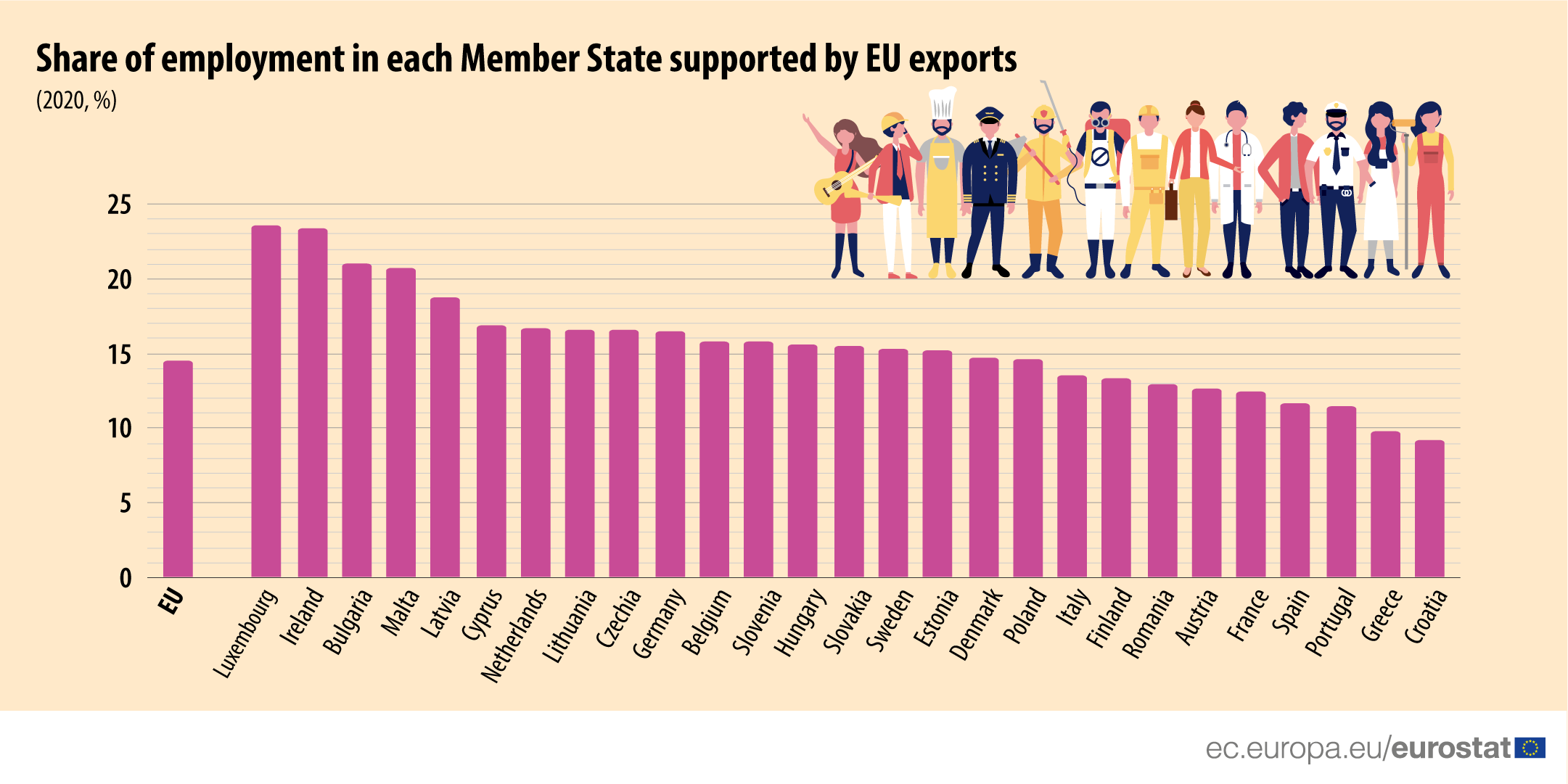September 8, 2022
Globalisation has resulted in many jobs being dependent on international trade. In 2020, the year the COVID-19 pandemic started, employment of 29.9 million persons in the EU was supported by exports to non-member countries, a slight increase from 29.6 million in 2019. In relative terms, export-supported employment represented 14% of total employment (206 million), which is equivalent to just over one in seven persons employed in the EU. While employment increased, the value of the associated trade slightly decreased, from €2 606 billion in 2019 to €2 438 in 2020.
EU exports supported €1 962 billions in value added in 2020, equivalent to 16% of the €12 032 billion in total value added created in the EU.
Germany was the EU Member State with the highest absolute level of employment supported by EU exports. In 2020, the jobs of 7.4 million persons in Germany were supported by exports from the EU, including exports from Germany itself. The level of export-supported employment in Germany exceeded the combined level of export-supported employment in France (3.5 million) and Italy (3.4 million), which had the second and third highest levels. Together, these three Member States accounted for almost half (48%) of the EU employment supported by exports to non-EU countries.
As a share of total employment, the employment in each of the EU Member States supported by EU exports ranged from just under 1 in 10 in Croatia (9%) and Greece (10%) to nearly one in four in Ireland (23%) and Luxembourg (24%).
Source: Eurostat
Legal Notice: The information in this article is intended for information purposes only. It is not intended for professional information purposes specific to a person or an institution. Every institution has different requirements because of its own circumstances even though they bear a resemblance to each other. Consequently, it is your interest to consult on an expert before taking a decision based on information stated in this article and putting into practice. Neither Karen Audit nor related person or institutions are not responsible for any damages or losses that might occur in consequence of the use of the information in this article by private or formal, real or legal person and institutions.







